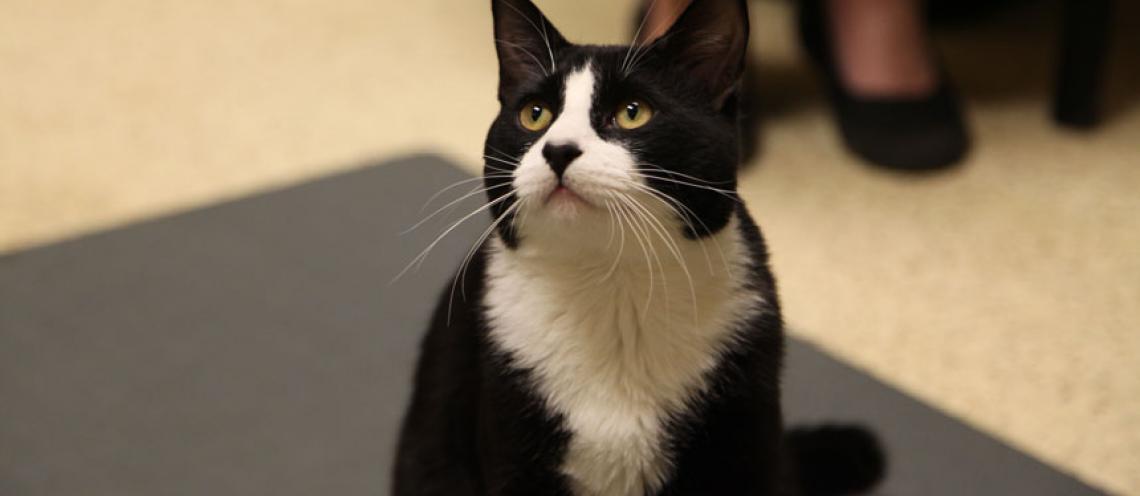
Whisker Fatigue in Cats
Monday, October 2, 2017
Whiskers are more than facial adornments on cats. Whiskers act as high-powered antennae that pull signals into a cat’s brain and nervous system.
A proprioceptor at the end of each whisker tells your cat a lot about its world. For example, a cat’s whiskers are about as long as the cat is wide and therefore act as a ruler of sorts. A cat can sense the size of an opening based on whether or not its whiskers are touching on either side.
A cat’s whiskers can sense changes in air currents when it is hunting fast-moving prey. Cats are naturally far sighted so their whisker sensitivity helps them to ‘see’ close up.
Your cat’s whiskers are so sensitive that they can become easily fatigued by unnecessary contact, such as touching the sides of food or water bowls. This ‘information overload’ can cause your cat stress according to articles published by the NY Times, PetMD, and Modern Cat.
Your cat’s behavior can tip you off if stress is an issue. For example, does your cat pace in front of the food or water bowls? Is your cat reluctant to eat but appears hungry? Does your cat play at food and knock it to the floor before eating?
These behaviors could also be related to potentially serious health conditions like dental disease, oral tumors, gastrointestinal diseases, behavioral issues and more. If you have any concerns about your cat’s well-being, contact your veterinarian.
If your cat appears to be healthy and is not eating, try providing a flat surface or a wide-enough bowl where its whiskers won’t touch. A stainless steel bowl will not harbor bacteria, which can lead to chin acne.
Most cats prefer a lip-less, large flowing water source. An automatic fresh water source might be optimal for your cat rather than a stale bowl of water.
Whatever you do, don’t trim your cat’s whiskers. Trimming whiskers can mute your cat’s expression, dim its perceptions and in general discombobulate your cat.
If you have questions about whisker fatigue, contact your veterinarian.
by Elisabeth Giedt, DVM
Veterinary Viewpoints is provided by the faculty of the OSU Veterinary Medical Hospital. Certified by the American Animal Hospital Association, the hospital is open to the public providing routine and specialized care for all species and 24-hour emergency care, 365 days a year.
